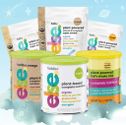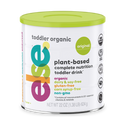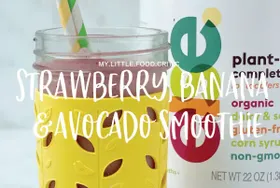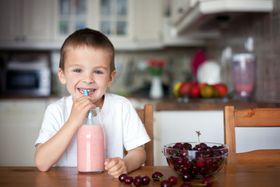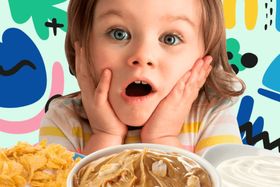Has Your Child Tried These Groundbreaking Alternatives for Nutrition?
Updated October 11, 2024
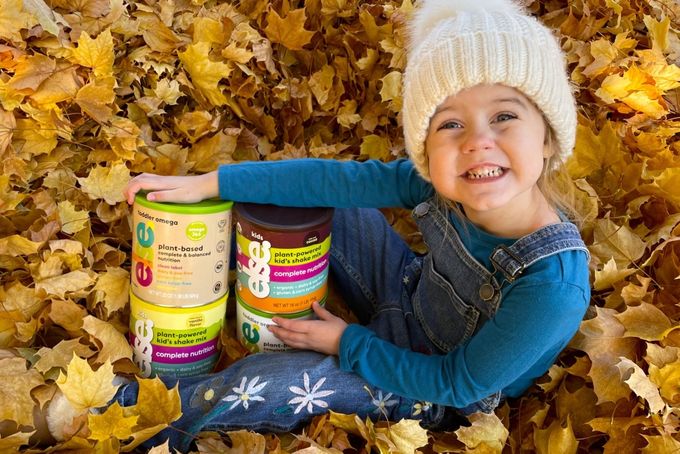
The fact is that toddler nutrition is ripe for change.
Many parents worry about their toddler’s nutritional health, wondering whether or not they are providing the best foods for optimal growth and development. The “happy to eat everything” infant becomes a child who refuses the very same foods he or she once loved. This can be very frustrating for any parent, and even more so if their child has a food allergy. The kid-friendly but low-nutrient foods often served in daycare settings can contribute to this problem.
Add a busy parent schedule along with an “on the go” lifestyle, and the result is a toddler who has become a “picky eater.”The quality of nutrition a child receives early in life affects brain development. Important cognitive and social skills develop during the toddler years.
According to Harvard Medical School, most children do not consume enough nutrients in their diets for optimal brain health despite the best efforts of parents. Having one or more food allergies makes providing nutritional balance even more difficult. So, how can we as a society do better for our children? The World Health Organization (WHO) has made an effort to establish standards for infant and child nutrition. Primarily, they recommend breastfeeding until the age of two. This is due to the increased bioavailability of calcium and the presence of docosahexaenoic acid (DHA) and arachidonic acid (ARA) in breast milk.
Studies also show that skills such as problem-solving, short-term memory, and attention span are affected by the quality of nutritional intake. Although breastfeeding until the age of two is recommended, it is not practical for many mothers for a variety of reasons. In 1981, the WHO collaborated with a global group of nutrition experts to develop standards for infant formulas. This was an effort to maintain consistency in the nutritional value of such products worldwide.
Since then, manufacturers have extrapolated these concepts to develop nutritional beverages for toddlers. With so many obstacles to getting appropriate nutrition, a novel product such as ELSE offers a solution.
Current State of Toddler Formulas
There are several toddler formulas currently on the market, but little has been discussed about their nutritional value. Many parents consider these formulas to be superior to milk because they are fortified with vitamins. Creative marketing has also made them very appealing. Due to their popularity, the American Academy of Pediatrics (AAP) issued an opinion statement: except for situations of medical necessity (i.e. food allergy, gastrointestinal disorder), the AAP does not recommend toddler nutritional beverages, only milk or water.
For most of the available formulas, milk is the first ingredient, but the second or third is sugar. Some formulations contain more than one form of sugar. Since the majority of brain growth and myelination occurs during the first two years of life, diets rich in fatty acids are important. Organic toddler formulas are no better; they also have a high sugar content.
When toddlers have a milk or soy allergy, choosing an alternative form of “milk” can be more challenging. Although many infants outgrow such allergies by their first birthday, some do not. In clinical practice, many parents are frustrated enough to continue giving the hydrolyzed or hypoallergenic formula their child took as an infant.
Others, frustrated by the cost of these specialty formulas, resort to giving their toddler one of the milk alternatives available on the market. These options, such as goat milk, nut milk, and oat milk, do not provide an adequate amount of the fat toddlers need for brain myelination. The AAP has recommended soy milk due to its higher fat content, but this is not an option for those with a soy allergy. Popular culture has also promoted negative opinions on the consumption of soy, so many parents avoid it.
A Real, Plant-based Toddler Formula Alternative
Fortunately, a real alternative is available: ELSE. It is a milk-free, soy-free toddler nutritional drink, and an alternative to toddler formula or toddler milks. Unlike other products on the market, it is derived from almonds and buckwheat. It has been formulated according to the Codex guidelines developed by the WHO collaboration, but it also exceeds these basic requirements. ELSE differs from other toddler beverages in that it contains significantly less sugar and, of course, is dairy-free and soy-free.
ELSE has no cholesterol, less sodium, and more fiber. All ingredients are non-GMO and vegan. This is especially appealing to families who choose a vegan lifestyle. ELSE contains the particular nutrients a toddler needs.
Because of its creative formulation, the ELSE toddler formula alternative stands out as a unique product for ages 12 to 36 months. During the toddler “picky eater” phase, it may be just the product parents need to supplement their child’s limited diet. The convenience and high-quality ingredients should encourage parents to choose something… ELSE.
The content and advice provided in this article is for informational purposes only and is not a substitute for medical diagnosis, treatment, or advice for specific medical conditions. Always consult a pediatrician to understand the individual needs of your child.




